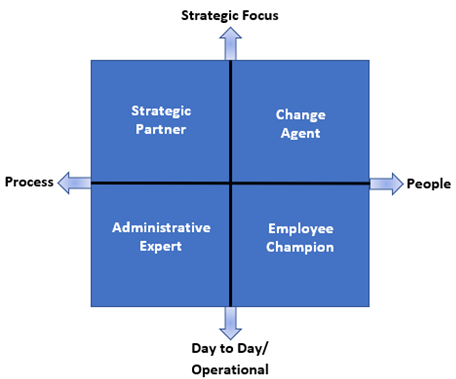Adam Janering MA MCIPD is an HR consultant, supporting local SMEs with HR advice. He’s kindly offered to share some thoughts with our clients through a short series of blog posts. First up, Adam addresses whether HR is still required in today’s word of work.
In a rapidly evolving work landscape, what is the the role of HR and is it even still needed?
Let me take you back to March 2022, P&O Ferries made the headlines when they fired nearly 800 employees via a brief pre-recorded Zoom meeting. P&O bypassed the usual employee consultation process, offering Settlement Agreements instead, which meant paying off employees in exchange for the employees to waive their employment rights (including the right to make an Employment Tribunal claim against P&O). This left the employees with a choice; either accept the financial settlement and go quietly or pursue legal action against the company, with no guarantee of any payment at all.
There are two contrasting perspectives from this approach:
A Calculated Risk
You could argue that P&O’s approach was a calculated risk aimed at reducing the time and expenses associated with traditional redundancy procedures. Employees were offered a more substantial financial package, sparing them from the emotional distress typically tied to such processes.
-or-
A Clumsy Midhandling
The alternative view is that P&O’s actions were an ill-conceived attempt to sidestep the proper legal processes, pre-empting the outcome of a redundancy consultation and undermining its very purpose.
The media backlash against P&O at the time suggested that, in this instance, a more traditional, employee-centric approach might have been more appropriate. It would also be reasonable to question what P&O’s HR team had to say when this proposal was first considered.
A year on, whether P&O did get away with it is debatable. The company’s Chief Executive remained in his role, even after being questioned by MP’s. The impact to the company’s reputation and employer brand is not so clear cut. The stories of the sacked workers back in March 2022 talked about P&O like it was a second family with many of them having decades of service with the company. Dismissing so many of them in this manner and so abruptly will have a lasting impact in many of their communities and beyond.
Effective HR will always include engaging and communicating with employees. This is a core principle that rings true for all good leadership and line management, regardless of the situation. The resurgence of trade unions in recent times, supporting not only the employees impacted at P&O but many other industries highlights the significance of employee relations, particularly amid rising living costs and stagnant wage growth in the UK.
Even with the best intentions for employees at heart, it may not always be enough. In 2022, job vacancies reached record highs, making it easier for dissatisfied employees to explore other opportunities. Data from the UK Government suggest that unemployment is on the rise which is potentially good news for employers looking to recruit. However, this data should be taken with a pinch of salt as companies reporting the data have not been as forthcoming with this info more recently. The reality is that retaining and attracting top talent is more challenging than ever.
So, is HR still relevant?
In short, yes.
The real question is, how can HR make a difference?
Dave Ulrich’s model of HR (see below) has long served as a framework for understanding HR’s function and impact within an organization.

Let’s explore the four key aspects of this model….
HR as a Strategic Partner
HR must be aligned with an organization’s commercial activities, including discussions on revenue, profit, and growth. This alignment naturally affects the recruitment, retention, training, and upskilling of employees.
HR as Change Agents
HR plays a crucial role in facilitating a smooth transition when an organization undergoes changes. By proactively addressing the needs of employees during transitions, HR helps the company adapt more effectively.
HR as Employee Champions
High levels of employee engagement are a valuable asset to any organization. HR’s role as an employee champion ensures that employees feel heard and that their suggestions, improvements, and concerns are communicated to senior management.
HR as Administrative Experts
Finally, HR ensures that all organizational processes are carried out correctly, promptly, and in accordance with the law. Given the complexity of employment legislation, having the right procedures, contracts, and legal documentation in place is fundamental for all organizations.
In conclusion, HR remains an essential function in the modern workplace, playing a pivotal role in shaping an organization’s success and its ability to navigate an ever-changing business landscape.
If you would like to have a chat about implementing your HR strategy, making some changes to your organisational structure, checking your employment documentation is up to date or if you have a general HR question that you’d like to discuss then please get in touch via email info@AdforHR.co.ukor by phone on 07597 248428
